#INTERNATIONAL INDIGENOUS PEOPLES DAY
Explore tagged Tumblr posts
Text
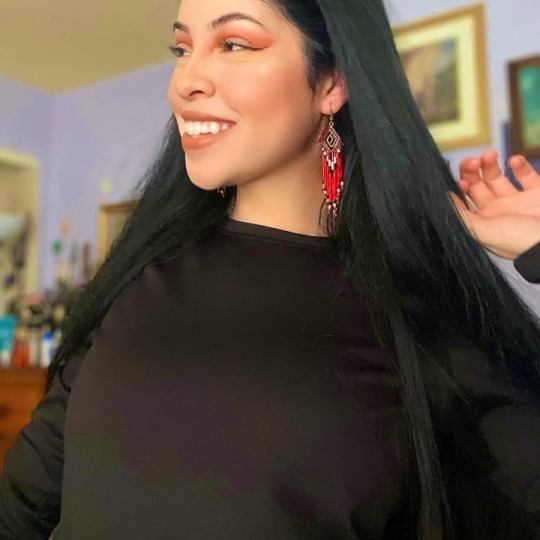

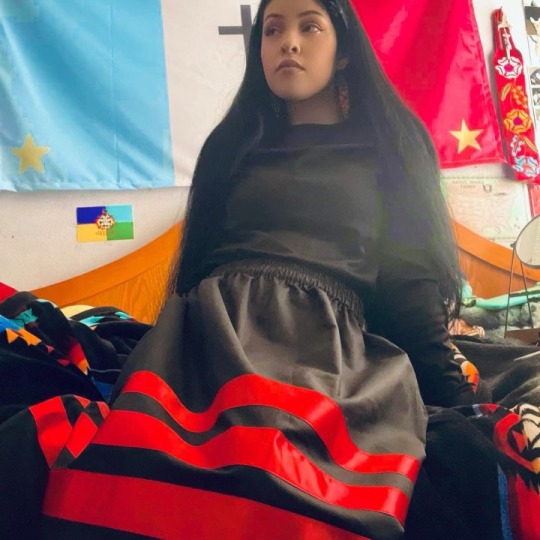

Happy International Day of Indigenous Peoples!🪶♥️
#mine#yoeme#purhepecha#representing#yaqui#purepecha#indigena#international indigenous peoples day#ribbon skirt#youtuber#vlogger#ootd#ndn#indigenous#native pride#native american#first nations#california#yaquesita#for you
96 notes
·
View notes
Text




























International Day of The World's Indigenous People
The International Day of the World’s Indigenous People on August 9 pays tribute to the indigenous communities of the world. The latest data reveals that there are about 370 to 500 million indigenous people living in 90 countries. These communities are noted to have their own unique set of languages, traditions, cultures, and governing systems. For many indigenous groups, the systems that their ancestors have followed for centuries have stood the test of time by serving them with positive outcomes to date. Many indigenous people’s special bond and connection with nature have also led to the protection of the general environment. However, on the other side, several indigenous communities face difficulties due to a central government’s covert and overt attempts to control their lives. This has led to indigenous people’s rights violations where they would have otherwise ensured peaceful and harmonious lives for them.
History of International Day of The World's Indigenous People
The first International Day of the World’s Indigenous People was officially celebrated in August 1995. The day had been brought into existence when the 49/214 resolution was passed by the U.N. General Assembly on December 23, 1994. August 9 was chosen as the commemorative date because that was when the first meeting of the U.N. Working Group on Indigenous Populations of the Sub-Commission on the Promotion and Protection of Human Rights was held. Every year, the day is honored by governments and organizations holding education forums and conferences to meet and discuss the social issues faced by indigenous groups worldwide. People are also given information on any ongoing and/or upcoming activities and projects that are being undertaken to help the target communities. Every year, the theme changes to shed light on a pressing topic, and the theme for the year 2021 was ‘Leaving no one behind: Indigenous peoples and the call for a new social contract.’
The social contract theme is a call for accountability in the general populations’ interaction with the indigenous communities and their resources. Over the years, many indigenous groups have found themselves to be on a disadvantageous terrain in the face of urban development projects that have destroyed and denigrated their lands and territories. The central governments and builders involved in such projects never sought permission from or even spoke with the indigenous communities before they took the developmental steps. Organizations and agencies like the U.N. and UNESCO have made efforts for constitutional/legislative reforms for dominant indigenous groups. Yet, the efforts must be focussed on bringing everyone together in the cause, leaving none behind.
International Day of The World's Indigenous People timeline
1982 First U.N. Meeting on Indigenous People
The U.N. holds the first meeting on indigenous people by forming the U.N. Working Group on Indigenous Populations of the Sub-Commission on the Promotion and Protection of Human Rights.
1995 International Day of the World’s Indigenous People
The first International Day of the World’s Indigenous People is celebrated by the U.N. General Assembly.
2005 - 2015 Indigenous People’s Decade
The U.N. proclaims 2005 to 2015 to be the ‘Decade of Action and Dignity’ for the indigenous communities.
2019 Indigenous Languages Year
After a startling 2016 report on the danger of more than 2,000 indigenous becoming extinct, the U.N. declares 2019 to be the International Year of Indigenous Languages in order to create awareness.
How To Observe International Day of the World’s Indigenous People
Learn about indigenous groups
Learn an indigenous language
Stand by indigenous groups
History related to indigenous people is always interesting to read and learn about. They have their own sets of beliefs, customs, languages, and cultures. Their daily lifestyles are also often connected with nature, be it animals, trees, certain plants, or lakes/rivers.
The U.N. declared the years 2022 to 2032 the decade for indigenous languages. The goal is to bring to attention the dying languages, since most of them are not taught in schools or are used by the general public. Losing a language is losing an important facet of the history and culture of a people.
The best way to celebrate this day and the rest of the year is by vowing to stand by indigenous groups. The indigenous people have the right to freely choose however they wish to live, much like any other living being on this planet. Protecting their rights also in turn protects your rights in the long run.
5 Interesting Facts About Indigenous People
80% of the world’s biodiversity
4,000 indigenous languages
High poverty rates
Short life spans
Leaders in protecting the environment
Around 80% of the world’s biodiversity is in places where indigenous groups are living.
The 5,000 indigenous communities in the world are credited with having about 4,000 languages.
While the indigenous communities account for only 5% of the world’s population, they make up 15% of the world population that is living in poverty.
Indigenous communities, due to a lack of awareness, have shorter life spans as they die of preventable diseases like malaria and H.I.V.
Studies have shown that the fauna and flora, and biodiversity thrive and flourish where indigenous people reside.
Why International Day of the World’s Indigenous People is Important
It’s a celebration of indigenous people
It’s a celebration of indigenous languages
It’s a celebration of the freedom to live
Indigenous people form an essential and crucial part of not only our planet’s history, but also how human beings have come to make systems to lead fruitful lives. The indigenous people’s cultures, customs, and traditions are interesting to learn about for their uniqueness and for what they teach us about the universe and the bigger picture.
Language, at its core, builds the identity of a people. The involvement of the different phonetics, grammar rules, and formal/informal styles can tell one a lot about where a community has come from, and how their history has shaped them. The same is the case with indigenous languages. The problem lies in their endangerment, and this is why we must strive to preserve them.
The freedom to practice our rights on a piece of land that has shaped our communities for centuries should not be taken away from anyone. The freedom to practice our customs, traditions, and general lifestyles is another important aspect of living a worthwhile life. For these very reasons and many others, we should join indigenous people in their right to live and flourish however they like.
Source
#Thunderbird sculpture by Jody Broomfield#Gitwangak Battle Hill#Two Brothers Totem Pole by Jaalen and Gwaai Edenshaw#Building on the Past Looking to the Future by Ken Anderson#Whitehorse#Yukon#Alberta#British Columbia#Canada#Vancouver#Terrace#Jasper#original photography#tourist attraction#landscape#International Day of The World's Indigenous People#9 August#jingle dance#DayOfTheWorldsIndigenousPeople#travel#vacation#USA#pictographs#petroglyphs
18 notes
·
View notes
Text
#indigenous knowledge#solarpunk#indigenous people#international day of the world's indigenous peoples#august 9th
7 notes
·
View notes
Text
youtube
It’s the International Day of the World’s Indigenous People. Our video about the word “Nation” and nationalism delves into the roots of the terms ‘native’ and ‘indigenous’, and how the concepts have developed over time.
#day of the world’s indigenous people#international day of the world’s indigenous people#indigenous#nation#national#etymology#history#words#language#linguistics#word nerd#wordnerd#history of the english language#history of english#lingblr#historical linguistics#lingcomm#video#youtube
2 notes
·
View notes
Text
International Day of the World's Indigenous Peoples
Today is the International Day of the World's Indigenous Peoples, a day to celebrate Indigenous Peoples and their knowledge, culture and traditions.
It is also a day to raise awareness of their needs and to take steps toward promoting and protecting their rights.
Indigenous peoples live all around the world and are numbering (at least) 300-500 million, which is about 6 percent of the global population.
They speak an majority of the world's estimated 7,000 languages. Many of these language are endangered. (Meaning, that is at risk of disappearing as its speakers die out or shift to speaking other languages.)
Many Indigenous Peoples share common problems and needs. Some of these issues are poverty, health issues, linguistic & cultural preservation, land rights, discrimination & human rights violations.
Let today be a day to maybe learn a little more about the great diversity of the people on our planet.
11 notes
·
View notes
Text
i don't celebrate international day of world's indigenous peoples because that's literally just everyday for me 😎
3 notes
·
View notes
Text
There are a few nuanced reasons, but to be blunt: intergenerational inequity is both one of if not the biggest political issue and something that people are comfortable openly acknowledging.
So Australia has a yearly tradition going back over 20 years, that every Australia Day we all gather round our screens to watch an ad for a certain product. It's so ingrained in our consciousness that the ads don't even really relate to what they're supposed to sell anymore, we all just know.
This year the ad broke containment, and non-Australians are having their brains melted by this bizarre tradition, so international followers, lets see if you can work out what this is trying to sell before the last few seconds.
#indigenous rights don't attract a lot of attention outside of certain parts of the country#every year we debate whether our national holiday should be invasion day but it never amounts to anything#though i think like everything else it's generational: most young people support moving the date and most old people want to keep it#but intergenerational inequity is HUGE you can't listen to anything in news or politics without it coming up#i can't even think of an international or american equivalent here lol#i saw that you live in a country with ties to aus so hope i'm not misreading this and explaining what you already know#also i have no idea what op is talking about; i know nothing of these ads and don't have an aus day habit
62K notes
·
View notes
Text
West Papua’s Indigenous people have called for a boycott of KitKat, Smarties and Aero chocolate, Oreo biscuits and Ritz crackers, and the cosmetics brands Pantene and Herbal Essences, over alleged ecocide in their territory.
All are products that contain palm oil and are made, say the campaigners, by companies that source the ingredient directly from West Papua, which has been under Indonesian control since 1963 and where thousands of acres of rainforest are being cleared for agriculture.
More than 90 West Papuan tribes, political organisations and religious groups have endorsed the call for a boycott, which they say should continue until the people of West Papua are given the right to self-determination.
Raki Ap, a spokesperson for the United Liberation Movement for West Papua, which is overseeing the call, said: “These products are linked to human rights violations, in the first place, because West Papuans are being forced, with violence, to get off the land where they’ve lived for thousands of years, which has now resulted in ecocide.
“This is a signal to the countries who are dealing with Indonesia, especially those in the Pacific region, to take notice of who they’re dealing with and how they are basically allowing Indonesia to continue the colonial project in West Papua, the human rights violations, and also ecocide.”
West Papuans say more than 500,000 of their people have been killed by the occupation in the past six decades, while millions of acres of their ancestral lands have been destroyed for corporate profit. Indonesia, already the world’s largest palm oil exporter, is now breaking ground in West Papua on the world’s biggest single palm oil plantation, as well as a sugar cane and biofuel plantation that will be the largest deforestation project ever launched.
“West Papuans’, especially the ULMWP, position is very clear: we are a modern-day colony,” said Ap, speaking from the Netherlands.
“Indonesia hijacked the right to self-determination in 1962 when the Netherlands and Indonesia signed an agreement without any consultation in West Papua … After that, in 1969, there was a so-called referendum, which wasn’t fair, which wasn’t under international law, one man, one vote: just 1,025 men were handpicked at gunpoint to vote for integration to Indonesia.
“So this is the foundation of the Indonesia’s colonial project. When we became part of Indonesia against our will, basically the genocide unfolded.”
#palm oil#nestle#mondelez#proctor and gamble#west papua#indonesia#ecocide#colonialism#indigenous rights#deforestation
14K notes
·
View notes
Text
Community Wellness Resources
This month, I am hiking to fundraise for the National Parks Conservation Association (NPCA)! Support the journey here:Through Venmo: https://account.venmo.com/u/twiichiiThrough NPCA Fundraiser: https://give.npca.org/fundraiser/5852280 Hi all, I have been going to a lot of community events lately, so I wanted to share some of the resources around Los Angeles that support Indigenous Wellness,…
#Art#art therapist#art therapy#counselor#culture#garden#healing#Health#healthy#hike#hiker#hiking#hiking art therapist#history#indigenous#indigenous-peoples-day#international#justice#Los Angeles#meadow#mental health#mountain#national monument#national park#national parks#native plant#native-american#natural#naturalist#nature
0 notes
Photo
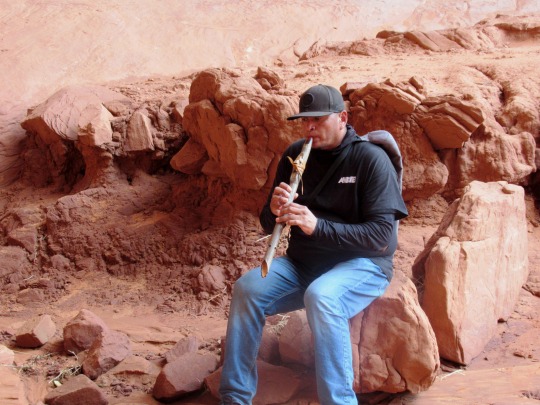

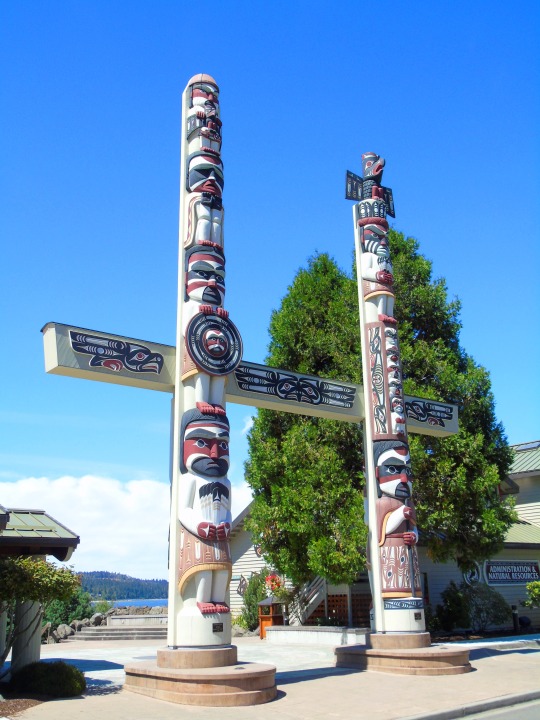
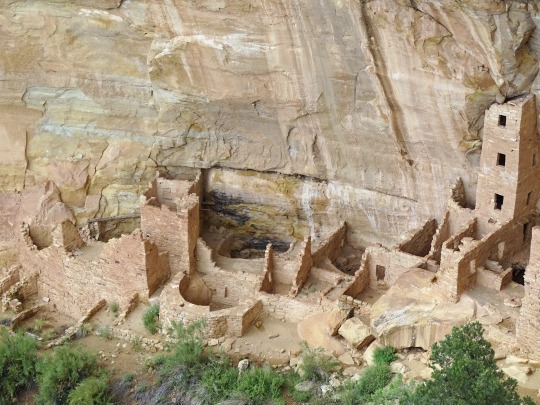

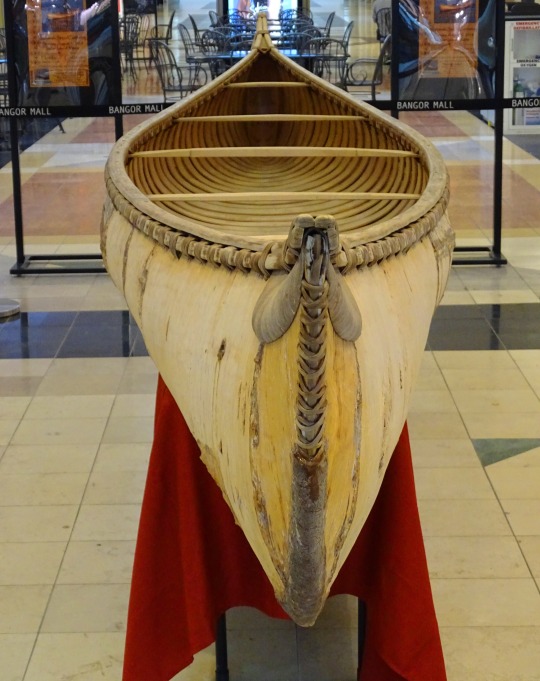

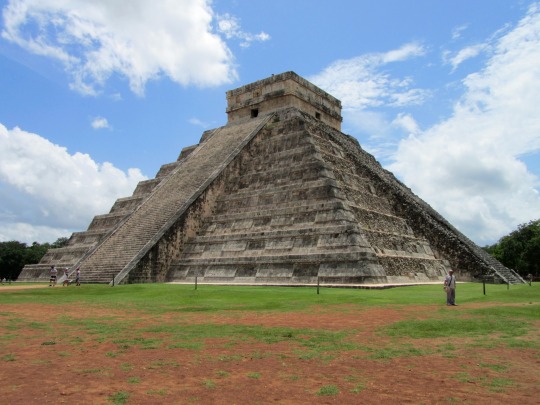


International Day of The World's Indigenous People
The International Day of the World’s Indigenous People on August 9 pays tribute to the indigenous communities of the world. The latest data reveals that there are about 370 to 500 million indigenous people living in 90 countries. These communities are noted to have their own unique set of languages, traditions, cultures, and governing systems. For many indigenous groups, the systems that their ancestors have followed for centuries have stood the test of time by serving them with positive outcomes to date. Many indigenous people’s special bond and connection with nature have also led to the protection of the general environment. However, on the other side, several indigenous communities face difficulties due to a central government’s covert and overt attempts to control their lives. This has led to indigenous people’s rights violations where they would have otherwise ensured peaceful and harmonious lives for them.
History of International Day of The World's Indigenous People
The first International Day of the World’s Indigenous People was officially celebrated in August 1995. The day had been brought into existence when the 49/214 resolution was passed by the U.N. General Assembly on December 23, 1994. August 9 was chosen as the commemorative date because that was when the first meeting of the U.N. Working Group on Indigenous Populations of the Sub-Commission on the Promotion and Protection of Human Rights was held. Every year, the day is honored by governments and organizations holding education forums and conferences to meet and discuss the social issues faced by indigenous groups worldwide. People are also given information on any ongoing and/or upcoming activities and projects that are being undertaken to help the target communities. Every year, the theme changes to shed light on a pressing topic, and the theme for the year 2021 was ‘Leaving no one behind: Indigenous peoples and the call for a new social contract.’
The social contract theme is a call for accountability in the general populations’ interaction with the indigenous communities and their resources. Over the years, many indigenous groups have found themselves to be on a disadvantageous terrain in the face of urban development projects that have destroyed and denigrated their lands and territories. The central governments and builders involved in such projects never sought permission from or even spoke with the indigenous communities before they took the developmental steps. Organizations and agencies like the U.N. and UNESCO have made efforts for constitutional/legislative reforms for dominant indigenous groups. Yet, the efforts must be focussed on bringing everyone together in the cause, leaving none behind.
International Day of The World's Indigenous People timeline
1982 First U.N. Meeting on Indigenous People
The U.N. holds the first meeting on indigenous people by forming the U.N. Working Group on Indigenous Populations of the Sub-Commission on the Promotion and Protection of Human Rights.
1995 International Day of the World’s Indigenous People
The first International Day of the World’s Indigenous People is celebrated by the U.N. General Assembly.
2005 - 2015 Indigenous People’s Decade
The U.N. proclaims 2005 to 2015 to be the ‘Decade of Action and Dignity’ for the indigenous communities.
2019 Indigenous Languages Year
After a startling 2016 report on the danger of more than 2,000 indigenous becoming extinct, the U.N. declares 2019 to be the International Year of Indigenous Languages in order to create awareness.
How To Observe International Day of the World’s Indigenous People
Learn about indigenous groups
Learn an indigenous language
Stand by indigenous groups
History related to indigenous people is always interesting to read and learn about. They have their own sets of beliefs, customs, languages, and cultures. Their daily lifestyles are also often connected with nature, be it animals, trees, certain plants, or lakes/rivers.
The U.N. declared the years 2022 to 2032 the decade for indigenous languages. The goal is to bring to attention the dying languages, since most of them are not taught in schools or are used by the general public. Losing a language is losing an important facet of the history and culture of a people.
The best way to celebrate this day and the rest of the year is by vowing to stand by indigenous groups. The indigenous people have the right to freely choose however they wish to live, much like any other living being on this planet. Protecting their rights also in turn protects your rights in the long run.
5 Interesting Facts About Indigenous People
80% of the world’s biodiversity
4,000 indigenous languages
High poverty rates
Short life spans
Leaders in protecting the environment
Around 80% of the world’s biodiversity is in places where indigenous groups are living.
The 5,000 indigenous communities in the world are credited with having about 4,000 languages.
While the indigenous communities account for only 5% of the world’s population, they make up 15% of the world population that is living in poverty.
Indigenous communities, due to a lack of awareness, have shorter life spans as they die of preventable diseases like malaria and H.I.V.
Studies have shown that the fauna and flora, and biodiversity thrive and flourish where indigenous people reside.
Why International Day of the World’s Indigenous People is Important
It’s a celebration of indigenous people
It’s a celebration of indigenous languages
It’s a celebration of the freedom to live
Indigenous people form an essential and crucial part of not only our planet’s history, but also how human beings have come to make systems to lead fruitful lives. The indigenous people’s cultures, customs, and traditions are interesting to learn about for their uniqueness and for what they teach us about the universe and the bigger picture.
Language, at its core, builds the identity of a people. The involvement of the different phonetics, grammar rules, and formal/informal styles can tell one a lot about where a community has come from, and how their history has shaped them. The same is the case with indigenous languages. The problem lies in their endangerment, and this is why we must strive to preserve them.
The freedom to practice our rights on a piece of land that has shaped our communities for centuries should not be taken away from anyone. The freedom to practice our customs, traditions, and general lifestyles is another important aspect of living a worthwhile life. For these very reasons and many others, we should join indigenous people in their right to live and flourish however they like.
Source
#Native American flute#Monument Valley Navajo Tribal Park#Arizona#USA#Dinosaur National Monument#Diné#Mesa Verde National Park#Colorado#Square Tower House#Jamestown S'Klallam Tribe#Wabanki Canoe#Mexico#Chichén Itzá#The Gather-Ring by Manuel Báez and Charlynne Lafontaine#Ottawa#Cliff Palace#original photography#tourist attraction#landscape#International Day of The World's Indigenous People#9 August#Canada#jingle dance#DayOfTheWorldsIndigenousPeople
11 notes
·
View notes
Text
XITE Gamharia Celebrates International Day of the World's Indigenous Peoples
XITE Gamharia hosted a vibrant celebration of the International Day of the World’s Indigenous Peoples, highlighting Jharkhand’s indigenous traditions. On August 11, 2024, XITE Gamharia organized a culturally rich event to celebrate the International Day of the World’s Indigenous Peoples, showcasing the traditions and contributions of Jharkhand’s indigenous communities. JAMSHEDPUR – XITE Gamharia…
#शिक्षा#Cultural Preservation#education#indigenous food and dance#indigenous heritage celebration#International Day of Indigenous Peoples#Jharkhand tribal culture#storytelling Jharkhand tribes#Tata Steel Foundation#XITE Gamharia community#XITE Gamharia event#XITE Gamharia Ramp Walk
0 notes
Text
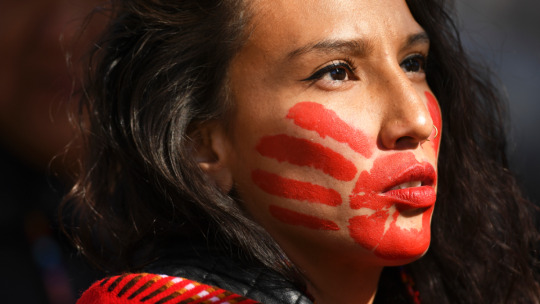
May 5 is the Day of Awareness for Missing and Murdered Indigenous Women, Girls, and Two-Spirit People. (Also known as Red Dress Day.)
Show your support and pass on your strength by wearing red on May 5, and raising awareness. And if you have never read the Reclaiming Power and Place report, you can do so here.
Additionally, while the day is typically centred in Turtle Island, let us also not forget our international cousins, especially in Palestine and Sudan.
6K notes
·
View notes
Text
A very special shout-out to indigenous lesbians today!
0 notes
Text
Harmony's Call: A Day of Charity
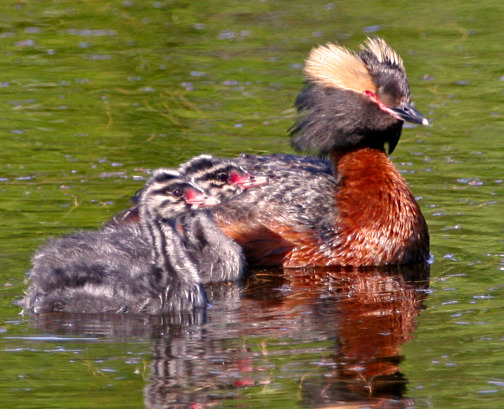
View On WordPress
#FriendsAreas#@FriendsAreas#ability accessibility#blind#compassion#culture#deaf#disability#endangered species#English as an Additional Language (EAL)#Friends of the Saskatoon Afforestation Areas#George Genereux Urban REgional Park#giving#Greenspace#hard of hearing#heritage#History#Immigrants#Indigenous peoples#International Day of Charity#LGBTQI2S+ communities#Low income persons/households#mental illness#mission#mobility aid#newcomers#Persons living with mental illness#Persons with disabilities#Persons with low literacy#philanthropy
0 notes
Text
okay, if you have ever made or reblogged a “hold your nose and vote for biden” post, this is for you.
here’s the fucking thing about these kinds of posts. i've been seeing them since i first returned to tumblr in, I think, late 2022? they've certainly increased in frequency since october 7, but they were there before too, ready to counter any kind of opposition to biden that has cropped up. many of them are not just trying to educate people about what positive things biden has done, which, like, at least I can understand the motivation behind those ones? but so many of them are directly in response to people criticizing biden, and their only real point is “sure you’re upset at this thing biden did, but have you considered the election?” starting YEARS before the next presidential election, mind you.
and october 7 only made that clearer. i don’t think it had been a week before i saw these posts cropping up. can you not see how fucking ghoulish that is? to look at the rightful pain and anger of those whose relatives and communities are being slaughtered with active american support, to respond to one of the few pieces of agency most americans have in influencing what their governments do – their vote – by saying “yes but trump would be worse.” as if the primary people you’re lecturing – palestinians, muslims, arabs, black people, indigenous people, disabled people, other marginalized people – don’t remember exactly how bad it was under trump!
and even if you think not voting is an empty gesture – something i, who studied political science at a mainstream american lib college, who has worked as a field organizer on a previous democratic presidential campaign and for several policy campaigns, who currently works in public policy in america, used to believe, but have absolutely changed my mind on – what is in no way an empty gesture is saying publicly that you will not vote for someone. the arguments people usually have about why simply not voting is bad are that you can’t tell why someone is not voting, so it is as likely to be apathy or disenfranchisement as it is a political statement. but saying publicly that you will not vote for someone, and why you will not vote for them, absolutely is a political statement, and potentially a powerful one! but you choose to negate and/or ignore that by trotting out the “lesser of two evils” bullshit.
and then there’s the whole “yes but people will DIE under trump”. PEOPLE ARE DYING NOW. even if you’re fucking racist and have decided that palestinian lives don’t count, have you forgotten biden’s ongoing covid minimalism and dismantling of the CDC’s covid research and prevention infrastructure? have you forgotten his increase in spending for law enforcement scant years after the murder of george floyd and his administration's surveillance of protesters, including cop city protesters? have you forgotten his recent ramp-up in deportations of undocumented immigrants, including the active continuation of many trump-era policies?
maybe you have forgotten all those things and do purport to care about palestinians, but you just think that biden is doing his best to influence netanyahu and is getting nowhere! but then you must have forgotten all of the things that biden and his administration themselves have done to further this fucking genocide, including:
continuing to send arms to israel
putting together a military task force within days of yemen’s red sea blockade and attacking yemeni ships
bombing yemen
bombing syria
bombing iraq
vetoing three ceasefire resolutions at the united nations
testifying to defend israel and its genocide and occupation at the international court of justice
refusing to rescue palestinian-americans stuck in gaza
halting funding to the united nations relief and works agency for palestinian refugees (UNRWA) based on israeli claims that 12 of UNRWA’s over 30,000 staff were hamas agents, even though u.s. intelligence has not been able to independently verify this
lying that he’s personally seen photos of babies beheaded by hamas when he hadn’t because they didn’t exist (and even when his own staff cautioned him that reports of beheaded babies may not be credible)
questioning the number of palestinian deaths reported by the gaza ministry of health (when even israel has not questioned them, since they are in fact proud of those numbers)
perpetuating lies about hamas having committed the attack on al-aqsa hospital
questioning united nations reports of adults and children raped by israeli soldiers while claiming to have proof (that no one else has seen) of hamas doing the same
honestly so many more things that i can’t remember them all but others feel free to add
or maybe you haven’t forgotten any of that, and think that you’re still justified in lecturing people about why they should vote for biden, because you genuinely believe trump would still be worse. if that is the case, you have still failed to see that by saying you will vote for biden no matter what, you are part of the problem of biden continuing to act like this. because biden is counting on fear of trump to win him this next election no matter what else he does. despite his appalling polling numbers, despite the knowledge that he is losing the palestinian-american vote, the arab-american vote, the muslim-american vote, the black american vote, the youth vote – despite all of that, he is secure in the idea that he will still win because he is better than trump. can you not see how that allows him to act without impunity? how it becomes increasingly impossible for his base to influence what he’s doing if he thinks that they will be with him no matter what? this is how you make yourself complicit to biden’s actions, by not affording anyone even the slightest power to hold him accountable for anything.
and in most cases, the “hold your nose and vote for biden” thing is the response of people who aren’t even being instructed by others not to vote for biden. it is their response to people saying they themselves are choosing not to vote for biden. fucking ghoulish.
#fuck biden#u.s. politics#free palestine#genocide#covid#immigrant justice#prison abolition#police abolition#ableism#from the river to the sea palestine will be free
4K notes
·
View notes
Text
"In 2024, the United Nations recognized seven landmark projects worldwide as outstanding examples of success under its ongoing Decade on Ecosystem Restoration (2021-2030).
One of them was Acción Andina (Andean Action), an initiative that has launched 25 restoration and conservation projects focused on the high-altitude Polylepis forests of Peru, Chile, Bolivia, Argentina, Ecuador and Colombia.
More than 25,000 people from 200 communities have restored nearly 5,000 hectares (12,400 acres) of these forest and protected more than 11,250 hectares (27,800 acres) of existing woodland.
The initiative next aims to expand into Colombia and Venezuela.
...Co-founded by the nonprofit organizations Global Forest Generation and Andean Ecosystems Association (ECOAN), Acción Andina aims to protect and restore high-altitude Andean forests in Peru, Bolivia, Chile, Argentina and Ecuador, ensuring the preservation of vital water resources for millions of people across the region.
In fact, last February, Acción Andina was recognized by the United Nations as one of seven flagship initiatives for global restoration. The U.N. has declared 2021-2030 as its Decade on Ecosystem Restoration, emphasizing not only the urgent need to conserve remaining natural areas, but to restore what has already been lost...
“We witnessed immense suffering and hardship in the local and Indigenous communities of the Andes,” Aucca recalls. “So, my friends Gregorio Ferro, Efraín Samochuallpa, Willy Palomino and I decided that if we were going to enter the world of conservation, we had to do something for these communities. That’s how ECOAN was born. What sets us apart from other organizations is that we implement conservation initiatives in direct coordination with local actors — ensuring that our work benefits the communities themselves.”
Among friends and colleagues, Constantino Aucca is known simply as “Tino.” He says 2014 was a turning point for ECOAN, driven by his frustration with the empty rhetoric and lack of action on environmental issues at the U.N.’s series of annual climate summits, or conference of the parties (COPs).
“As a group, we decided to send a message to the world that action is possible,” he says. “In a single day, we planted more than 57,000 [queuña] trees high in Huilloc [in Cusco, Peru]. We called the event Queuña Raymi, or the Festival of the Queuñas.”
From that year on, Queuña Raymi gained traction across the Peruvian Andes, and Aucca never stopped dreaming of expanding the initiative to other Andean countries. “Queuñas grow from Venezuela to Patagonia,” he points out. In 2018, with the support of new international partners, that dream became a reality, giving rise to Acción Andina.
“In 2018 I was deeply interested in facilitating investments in forestry initiatives,” says Florent Kaiser, CEO of the NGO Global Forest Generation. “That’s when I was contacted by Constantino, and he told me about his project. He told me that to truly understand it, I needed to go to Cusco. That day changed my life. He invited me to the Queuña Raymi where, in a single day, nearly 1,000 of us planted almost 100,000 trees.
“I had never seen anything so powerful,” Kaiser adds.
Global Forest Generation was founded alongside Acción Andina with the goal of serving as a strategic ally: amplifying global communication efforts, influencing policymakers, and tackling challenges that often hinder local NGOs.
This partnership between ECOAN and Global Forest Generation has allowed Acción Andina to expand beyond Peru, bringing Aucca’s vision to life across five South American countries. Today, it stands as a U.N.-recognized success story in ecosystem restoration.
“It takes a single chainsaw to cut down a forest, but it takes a community to restore and sustain it,” UNEP’s Andersen said when announcing Acción Andina as one of the U.N.’s seven Flagship Initiatives for Global Restoration. “By bringing people together, and using both Indigenous values and scientific methods, Acción Andina is helping to revive natural water sources, create jobs and support communities to grow even stronger.”
Since 2018, Acción Andina has launched 25 projects, engaging at least 40,000 people in the restoration of nearly 5,000 hectares (12,400 acres) of Andean forests and the protection of more than 11,250 hectares (27,800 acres) of existing woodland. More than 200 local communities have benefited from expanded economic opportunities through reforestation and conservation efforts. These include the development of community microenterprises, such as tree nurseries dedicated to cultivating queuñas, as well as improved access to health care services, water collection systems, cleaner-burning clay stoves, and solar panels."
-via Mongabay News, February 14, 2025
#peru#andes#andes mountains#south america#Chile#Bolivia#Argentina#Ecuador#Colombia#ecosystem#ecosystem restoration#forests#conservation#indigenous#indigenous knowledge#climate action#trees#tree planting#good news#hope
470 notes
·
View notes